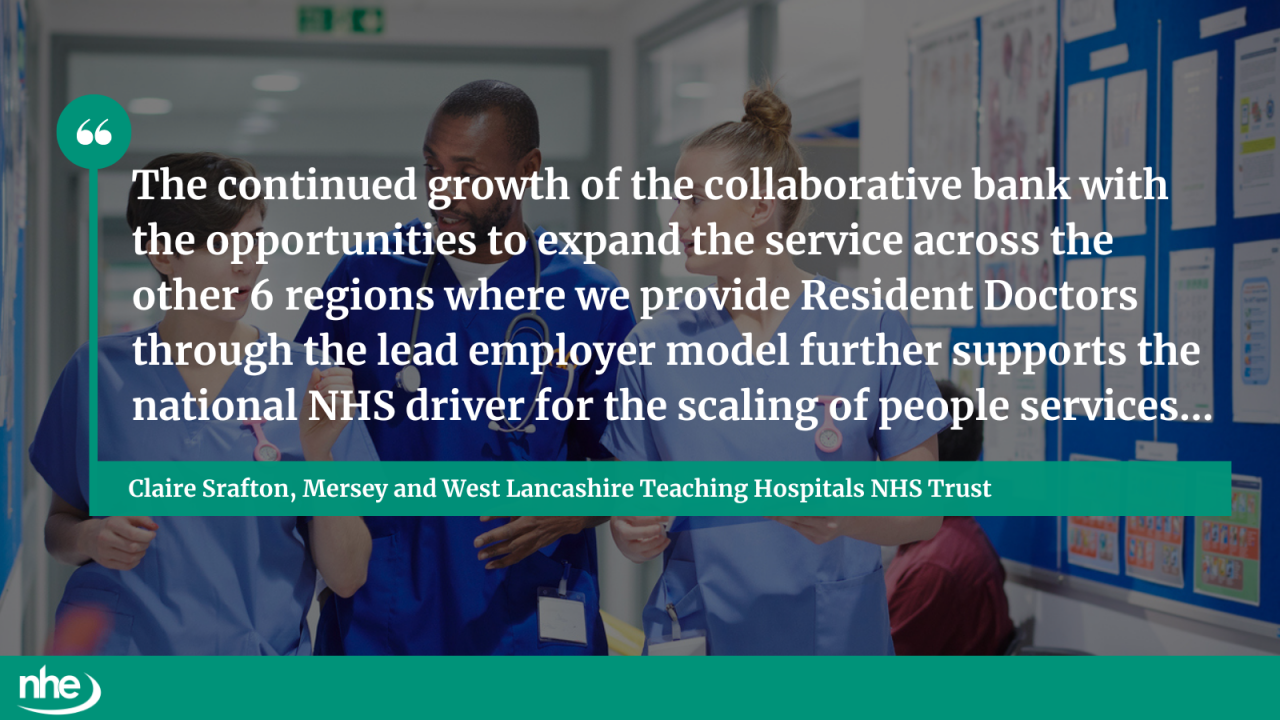A groundbreaking NHS staffing initiative launched in the North West during the pandemic has achieved significant milestones, staffing over 490,000 shift hours, saving £3 million in agency spend, and retaining £32.7 million in staffing costs within the NHS.
This landmark initiative, known as the NHS Collaborative Bank (MWL), is the largest of its kind in the UK and brings together 25 NHS Trusts to form a shared network of Resident Doctors working across the region.
The NHS Collaborative Bank leverages a lead employer model that facilitates "passporting" for Resident Doctors, enabling them to fill vacant shifts more easily and allowing Trusts to deploy staff strategically in response to fluctuating demand. This model empowers the medical workforce to work flexibly across 40 different sites, enhancing both efficiency and job satisfaction.
Since its launch in 2020, the initiative has saved £3 million in agency costs and helped retain an additional £32.7 million within the NHS. These savings are crucial as the NHS faces increasing pressure to reduce agency spend and improve staff retention amid rising workforce shortages.
The collaborative staff bank allows each of the 25 Trusts to broadcast available shifts to approximately 3,500 approved Resident Doctors across the North West. These doctors can select shifts via a connected app, ensuring their credentials are safely and compliantly passported between hospitals. This system eliminates the need for duplicate employment checks and mandatory training, with doctors typically onboarded within 48 hours, providing them with quick access to flexible working opportunities.
For participating Trusts, the collaborative bank acts as a 'staffing safety net,' filling vacant shifts when internal staff or bank staff are unavailable. This reduces the administrative burden on workforce teams and decreases reliance on external agencies. Trusts also benefit from comprehensive data insights on shift vacancies and pay rates, enabling more strategic and flexible staffing decisions.
There is also potential to expand this collaborative bank model to other sectors, such as hospices and primary care, further enhancing its impact.

Deputy Director of HR and Governance at Mersey and West Lancashire Teaching Hospitals NHS Trust, Claire Scrafton, said:
“The continued growth of the collaborative bank with the opportunities to expand the service across the other 6 regions where we provide Resident Doctors through the lead employer model further supports the national NHS driver for the scaling of people services, removing unwarranted variation and optimising the seamless passporting of our workforce between NHS organisations without the need to duplicate employment checks, statutory and mandatory training.”
Flexible staffing initiatives have already collectively saved the NHS £120 million since 2018 and supported over 50,000 clinicians across the UK.
Image credit: iStock



















